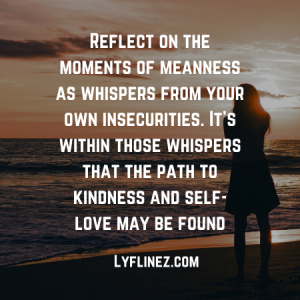Have you ever found yourself being mean to your boyfriend for no apparent reason? It happens to the best of us, and understanding the root causes is crucial for maintaining a healthy relationship.
In the context of a relationship, being “mean” typically refers to displaying unkind or hurtful behavior toward one’s partner. This can manifest in various ways, such as speaking harshly, making hurtful comments, showing disrespect, or engaging in actions that intentionally cause emotional pain.
Being mean in a relationship can strain the connection between partners, create a negative atmosphere, and contribute to overall dissatisfaction. It’s important to recognize and address such behavior to foster a healthier and more positive relationship.
Understanding the root causes of meanness and finding constructive ways to communicate and resolve conflicts can be crucial in building a strong and supportive connection with your partner. In this article, we’ll delve into the various reasons you might be mean to your boyfriend and explore ways to address and overcome these challenges.

Reason: Why Am I So Mean To My Boyfriend?
There could be several reasons why you might find yourself acting mean or displaying unkind behavior towards your boyfriend.
It’s essential to recognize that these reasons can vary from person to person, and self-reflection is key to understanding your specific situation.
Here are a few common factors that might contribute to such behavior:
1- Stress and Pressure:
Life can be demanding, and external stressors can take a toll on your emotional well-being. Whether it’s challenges at work, pressure from school, or family issues, these stressors can accumulate and impact your behavior. When feeling overwhelmed, it’s not uncommon for individuals to inadvertently project their stress onto those closest to them, like a boyfriend.
2- Unresolved Issues:
Every relationship faces challenges, and if there are lingering problems or unresolved conflicts between you and your boyfriend, they can become a breeding ground for negativity. Unaddressed issues can lead to frustration and resentment, prompting mean-spirited behavior as a way to cope with unresolved emotions.
3- Lack of Communication Skills:
Effective communication is the cornerstone of a healthy relationship. If you find it difficult to express your needs, concerns, or feelings, it can result in frustration. In such cases, you might resort to mean behavior as a misguided attempt to make your thoughts and emotions heard.
4- Personal Insecurities:
Everyone has insecurities, but when left unexamined, they can impact your behavior in a relationship. If you’re grappling with feelings of inadequacy or self-doubt, you might unintentionally project these insecurities onto your boyfriend, leading to mean-spirited actions or comments.
5- Emotional Regulation:
Managing your emotions is a skill that evolves. Difficulties in emotional regulation can manifest as impulsive or hurtful behavior. Learning healthy coping mechanisms, such as mindfulness or deep breathing exercises, can help you navigate challenging emotions more constructively.
6- Modeling Behavior:
Your past experiences, especially those within your family or previous relationships, can shape your behavior in the present. If you grew up witnessing mean or unhealthy relationship dynamics, you might unknowingly replicate those patterns. Acknowledging this influence is the first step toward breaking the cycle.
7- External Influences:
Societal expectations, friends’ opinions, or family pressures can impact how you perceive your relationship and your role within it. It’s important to reflect on whether external influences are driving your behavior and to establish a connection with your values and desires in the relationship.
8- Mood Swings and Hormonal Changes:
Fluctuations in mood due to hormonal changes, such as those associated with the menstrual cycle, can impact emotional regulation. It’s important to be aware of these changes and find ways to manage mood swings without directing negativity towards your partner.
9- Fear of Vulnerability:
Expressing vulnerability can be challenging for some individuals. If you have a fear of being emotionally open or fear rejection, you might resort to mean behavior as a defense mechanism to protect yourself from perceived emotional threats.
10- Lack of Boundaries:
In some cases, a lack of clear boundaries in the relationship can contribute to mean behavior. Unclear expectations or a feeling of being overwhelmed by the demands of the relationship might lead to frustration and, consequently, unkind actions.
11- Coping Mechanism for Past Trauma:
Individuals who have experienced past trauma may develop coping mechanisms that involve pushing people away or adopting defensive behaviors. If unresolved trauma is affecting your relationship, seeking professional help is crucial.
12- Mismatched Communication Styles:
Differences in communication styles between partners can result in misunderstandings. If one person tends to be more direct while the other prefers subtlety, misinterpretations can occur, leading to unintended mean-spiritedness.
13- External Pressures on the Relationship:
Outside pressures, such as financial difficulties or societal expectations, can strain a relationship. If you’re feeling the weight of external stressors, it might influence your behavior towards your boyfriend, especially if the relationship becomes a scapegoat for broader issues.
14- Lack of Self-Care:
Neglecting self-care can impact your overall well-being and, consequently, your behavior in a relationship. When you’re not taking care of your own needs, it becomes challenging to maintain a positive and nurturing connection with your partner.
15- Unmet Expectations:
Unrealistic expectations or unmet needs within the relationship can lead to disappointment. If you find yourself repeatedly let down, it might result in frustration and, subsequently, mean behavior as a way of expressing dissatisfaction.
Recognizing these factors and engaging in open communication with your boyfriend about your feelings and intentions can be a pivotal first step.
Seeking support from friends, family, or a relationship counselor can offer additional perspectives and guidance.
Remember, personal growth and relationship improvement take time and effort, so be patient with yourself as you navigate this journey toward a healthier and more positive connection.

Self-Reflection
Do You Start To Dislike Him Because You Are Becoming Mean To Him?
Disliking someone in a relationship doesn’t usually happen overnight; rather, it can be a gradual process influenced by various elements. Reflect on recent interactions and assess whether there have been changes in your emotional responses.
Consider external stressors that might be impacting your overall mood, as these feelings can sometimes be displaced onto those closest to you.
Evaluate communication patterns and potential unresolved issues within the relationship, as these factors can significantly influence your perception of your boyfriend. Additionally, ponder whether personal insecurities or unmet expectations are contributing to your changing feelings.
It’s important to engage in open and honest communication with your boyfriend to express your concerns and understand his perspective. Seeking the advice of friends, family, or a relationship counselor can also provide valuable insights.
Ultimately, the key lies in introspection and addressing the root causes of any negative feelings, fostering an environment where both partners feel heard and understood.
Further Readings
- What To Do When The Intimacy Stops In A Relationship
- What Guys Want In A Long Distance Relationship – ( Explained )
- Reasons Why A Guy Would Block You – Is It The Attention Game?
- Ultimate Guide On How To Stop Obsessing Over A Lost Friendship
- Surefire Signs She Wants To Be With You Forever In Life
Going To Leave Or Already Left?
The decision to leave a relationship, or whether one has already left, is a deeply personal and often complex matter.
If you find yourself contemplating leaving, it’s essential to evaluate the factors influencing this choice. Consider whether there have been persistent issues, unmet needs, or a gradual emotional disconnect that led to your contemplation of ending the relationship. Because you are so mean to your boyfriend, maybe you are going to leave him.
Reflect on your feelings, assessing whether the negative emotions outweigh the positive aspects of the relationship.
On the other hand, if you’re wondering whether you’ve already left emotionally or physically, examine your level of engagement and commitment. Emotional distance, reduced communication, or a lack of interest in shared activities could be indicators that you’ve started to detach.
It’s crucial to communicate openly with your partner about your feelings and intentions, fostering an environment where both perspectives are heard.
Seeking guidance from trusted friends, family, or professionals can provide additional support and insights.
Deciding to leave or recognizing that you’ve already left requires careful consideration and self-reflection to ensure that the choice aligns with your long-term well-being and happiness.
Quality Time Matters: Are You Neglecting It?
In the hustle and bustle of our fast-paced lives, the importance of quality time in relationships often takes a backseat. The question to ponder is whether you might be unintentionally neglecting this crucial aspect of connection.
Quality time goes beyond mere physical presence; it involves being fully engaged, emotionally present, and actively participating in the shared moments with your partner.
In the age of constant distractions, such as smartphones and busy schedules, it’s easy to find ourselves physically present but mentally absent.
Consider whether you’ve been allocating meaningful time to bond with your partner, free from external interruptions. Reflect on the depth of your conversations and shared experiences, as these are the building blocks of intimacy.
Neglecting quality time can lead to emotional distance and a sense of disconnection. It’s essential to prioritize and carve out moments where you can genuinely connect with your partner, fostering a stronger, more resilient relationship.
Whether it’s a quiet dinner, a weekend getaway, or even just a heartfelt conversation, recognizing and addressing any neglect of quality time can breathe new life into your relationship, creating a foundation of shared moments that withstand the test of time.

Need Some Space: Recognizing The Importance
Feeling the need for space in a relationship is a common and entirely valid sentiment that individuals may experience at different points.
Recognizing the importance of this need is a crucial aspect of maintaining a healthy and balanced connection with your partner.
The concept of needing space isn’t necessarily about distancing oneself emotionally but rather creating room for personal growth, self-reflection, and maintaining individual identities within the relationship.
The demands of daily life, work, and personal responsibilities can sometimes become overwhelming, making it essential to have moments of solitude and self-care.
Communicating this need for space with your partner is key to ensuring understanding and avoiding any misunderstandings.
It’s not a reflection of dissatisfaction or a lack of love; instead, it acknowledges the necessity for maintaining a sense of self within the partnership.
Space can take various forms — it might involve solo activities, spending time with friends or family, or simply having moments of quiet introspection. Recognizing and respecting each other’s need for space contributes to a more resilient and fulfilling relationship.
It allows for the continued growth of individuals within the partnership, fostering a stronger connection when you come back together. Ultimately, understanding and appreciating the importance of personal space can lead to a more balanced and harmonious relationship.
Stop Being Mean: Battling Low Self-Confidence
Addressing mean behavior in a relationship often involves delving into its roots, and one common underlying factor is low self-confidence.
If you find yourself being mean to your partner, it’s essential to recognize that this behavior might be a reflection of your insecurities.
Low self-confidence can manifest in various ways, including being overly critical, defensive, or even lashing out to protect yourself from perceived threats.
Acknowledging and addressing these insecurities is a crucial step toward fostering a healthier dynamic. Reflect on the specific situations or triggers that lead to mean behavior, and consider whether they stem from a place of self-doubt.
Developing self-awareness allows you to understand the connection between your actions and your internal struggles.
Building self-confidence is a gradual process that involves self-reflection, self-compassion, and sometimes seeking support from friends, family, or a professional counselor. Identify your strengths and accomplishments, and challenge negative self-talk.
Surround yourself with positive influences that uplift and support you.
In a relationship, open communication is vital. Discuss your feelings and struggles with your partner, helping them understand your journey toward greater self-confidence. Together, you can create a supportive environment that encourages personal growth and mutual understanding.
Remember, battling low self-confidence is a journey, and as you work on building yourself up, you contribute positively to the health of your relationship.

Action Plan: From “Mean Behaviour To Positive Change”
1. Self-Reflection: Understanding the Root Causes of Mean Behavior
To initiate positive change, take a deep dive into your emotions and identify the specific triggers that lead to mean behavior. This might involve reflecting on past experiences, insecurities, or stressors that contribute to negative reactions.
Evaluate your communication style and patterns. Are there recurring themes in your interactions that result in mean-spirited behavior? Recognizing these patterns is essential for breaking the cycle and fostering healthier communication.
Explore how past experiences and influences, such as family dynamics or previous relationships, shape your behavior. Understanding these influences provides valuable insights into your actions and lays the groundwork for personal growth.
2. Recognizing the Impact on Your Relationship
Assess the level of emotional closeness in your relationship. Mean behavior can create emotional distance. Understand how your actions impact the connection with your partner and whether there’s a need for rekindling emotional intimacy.
Examine how mean-spirited behavior affects communication with your partner. Recognizing the barriers that negativity creates in dialogue is crucial for implementing effective communication strategies.
Consider the impact of your actions on your partner’s well-being. Are they experiencing emotional distress or feeling unappreciated?
Acknowledging these effects underscores the importance of positive change for the sake of the relationship.
3. The Role of Self-Compassion: Building a Foundation for Change
Practice self-compassion by accepting that everyone makes mistakes. Embracing your imperfections creates a foundation for positive change and allows for personal growth.
Challenge negative self-talk and cultivate a more positive internal dialogue. Building a habit of self-encouragement contributes to a healthier self-image and, consequently, positive behavior in the relationship.
Invest time in activities that boost self-esteem. Whether it’s pursuing hobbies or setting and achieving personal goals, nurturing a healthy self-image is essential for fostering positive change.
4. Communication Strategies: Expressing Emotions Effectively
Develop active listening skills to better understand your partner’s perspective. Actively engaging in conversations demonstrates empathy and strengthens the foundation for improved communication.
Create an environment conducive to open dialogue. Encourage your partner to share their thoughts and feelings, fostering mutual understanding and promoting a more positive exchange of ideas.
5. Setting Boundaries: Balancing Independence and Togetherness
Define and communicate your boundaries within the relationship. Establishing clear expectations helps create a respectful and supportive environment for both partners.
Work together to set shared boundaries that accommodate the needs and aspirations of both partners. Negotiation ensures that each person’s individuality is respected while maintaining a strong connection.
Recognize and respect the need for personal space. Balancing independence and togetherness is crucial for a healthy relationship, allowing both partners to thrive as individuals while fostering a strong bond.
6. Building Emotional Intelligence: Managing and Understanding Emotions
Develop emotional intelligence by recognizing and naming your emotions. Understanding the source of your feelings empowers you to manage them effectively and express yourself more authentically.
Explore and adopt healthy coping mechanisms for dealing with stress and challenges. Developing constructive ways to manage emotions contributes to a more positive and supportive relationship dynamic.
Cultivate empathy by actively considering your partner’s perspective. Understanding and validating their emotions fosters a deeper connection and helps create a more compassionate relationship.
7. Seeking Support: Friends, Family, or Professional Help
Share your journey with trusted friends or family members. Opening up to a supportive network provides emotional outlets and valuable perspectives on your efforts toward positive change.
Consider seeking professional help through relationship counseling. A trained therapist can offer guidance, facilitate communication, and provide tools to navigate challenges, fostering a healthier relationship.
Acknowledge the significance of a support system. Whether through friends, family, or professional counselors, having a network that understands and encourages your commitment to positive change is invaluable.
8. Creating Positive Habits: Daily Practices for a Healthier Relationship
Infuse daily life with acts of kindness toward your partner. Small gestures, like expressing gratitude or offering support, contribute to a positive atmosphere and reinforce a caring connection.
Make a conscious effort to prioritize quality time together. Whether through shared activities, meaningful conversations, or dedicated date nights, fostering moments of connection is vital for a thriving relationship.
Celebrate personal and relationship milestones, both big and small. Recognizing and acknowledging achievements contributes to a positive mindset and reinforces the progress made in creating a healthier dynamic.
9. Tracking Progress: Reflecting on Positive Changes
Keep a journal to track personal growth and reflections. Documenting your journey helps reinforce positive changes and provides a tangible record of the progress made in fostering a more positive relationship.
Celebrate milestones within the relationship. Whether it’s an anniversary or overcoming a challenge together, acknowledging these moments reinforces the bond and encourages continued positive efforts.
Acknowledge and celebrate ongoing efforts toward maintaining a positive relationship. Recognizing the dedication to change reinforces the commitment to fostering a healthier and more fulfilling connection.
10. Moving Forward Together: Sustaining a Positive Relationship Dynamic
Maintain consistent and open communication. Regularly check in with your partner about emotions, needs, and the overall state of the relationship to ensure continued understanding and growth.
Be prepared to adapt to changes and navigate challenges together. Flexibility and a collaborative approach to problem-solving contribute to a resilient and enduring relationship dynamic.
Embrace the journey of personal and joint growth. Encourage each other to pursue individual aspirations while fostering shared goals, creating a relationship that evolves positively over time.
Conclusion
Why Am I So Mean To My Boyfriend: The recognition of one’s mean-spirited behavior towards a boyfriend prompts a journey of self-discovery and positive transformation. Understanding the root causes, whether they stem from personal insecurities, past experiences, or unmet needs, is the foundational step toward change. The impact of mean behavior on the relationship, such as emotional distance and communication barriers, underscores the urgency for self-improvement.
Cultivating self-compassion, effective communication strategies, and setting healthy boundaries contribute to building a more positive self-image and fostering a resilient connection with a partner. Seeking support, whether from friends, family, or professional counselors, further validates the commitment to positive change. The creation of positive habits, the celebration of achievements, and consistent efforts toward maintaining a healthy relationship dynamic are essential for sustained growth.
The journey from asking, “Why am I so mean to my boyfriend?” to positive change involves introspection, communication, and a commitment to personal and relational well-being.
